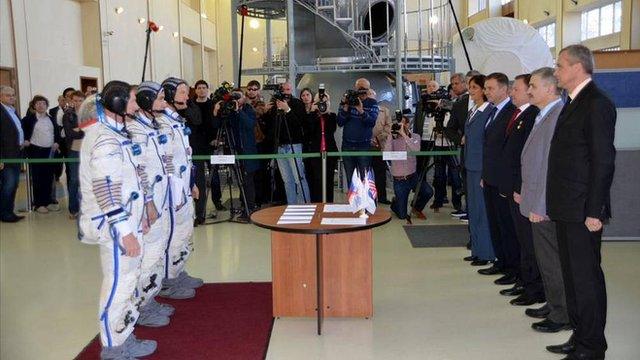Tim Peake aims to rekindle excitement of Moon missions
- Published
- comments
Tim Peake: "I'll be a willing volunteer, also known as a human guinea pig"
British astronaut Tim Peake says he hopes his mission to the space station will generate an Apollo-like fervour.
Mr Peake told BBC News that he is going to the orbiting lab primarily to do science, but that his priority will be to share his experiences.
He believes his mission can inspire more young people to become interested in science and engineering.
Mr Peake's six-month stint on the station begins in December when he leaves Earth on a Russian Soyuz rocket.
"The legacy I hope is that this will inspire a new generation to look at science, to look at space, as an exciting career path, and to make choices that push them in that direction," he said.
Friday saw him go in front of the media in his home country for the final time before his great adventure gets under way.
He now heads to Moscow to complete final training, before then flying to the Baikonur Cosmodrome in Kazakhstan for the launch.
His Soyuz is scheduled to lift off at 11:02 GMT on 15 December.
By 18:33 GMT that evening, he should be floating through the hatch into the International Space Station.
American astronaut Tim Kopra and Russian cosmonaut Yuri Malenchenko will be going up with him, to form a six-person crew with the three residents already on the platform.

Tim Peake: Career in brief
Born on 7 April 1972 in Chichester, West Sussex
Studied at Chichester High School for Boys, leaving to attend the Royal Military Academy in Sandhurst
After graduating, he served in the Army Air Corps and flew Apache helicopters
Retired from the Army in 2009 and was employed as a senior helicopter test pilot for AgustaWestland
Selected as a European Space Agency astronaut in May 2009 and completed basic training the following year.
Has been training for his six-month mission aboard the International Space Station, scheduled for launch on 15 December 2015
Enjoys skiing, scuba diving, cross-country running, climbing, and mountaineering, and he is interested in quantum physics and aviation

Aware that he will be stuck inside a sealed complex for a half year, Mr Peake says the thing he is likely to miss the most, other than his family, is fresh air.
Thomas Reiter is the director of human spaceflight at the European Space Agency, and is himself a hugely experienced astronaut.
His advice for the Briton: "It's important to use every second you have to look at our beautiful planet and to enjoy the view.
"Even if you are there for half a year, it's important to take every opportunity to look down, or up in space because this view is just as fascinating."
Tim Peake's stay will be dominated by doing science - everything from investigating future materials to finding better ways to fight disease.
Many of these experiments will be commanded from the ground, and Mr Peake will be acting as a kind of high-flying lab technician, checking equipment is doing what it should and changing set-ups when required.
But he will also be a guinea pig for a series of medical tests. Twenty-three in total.
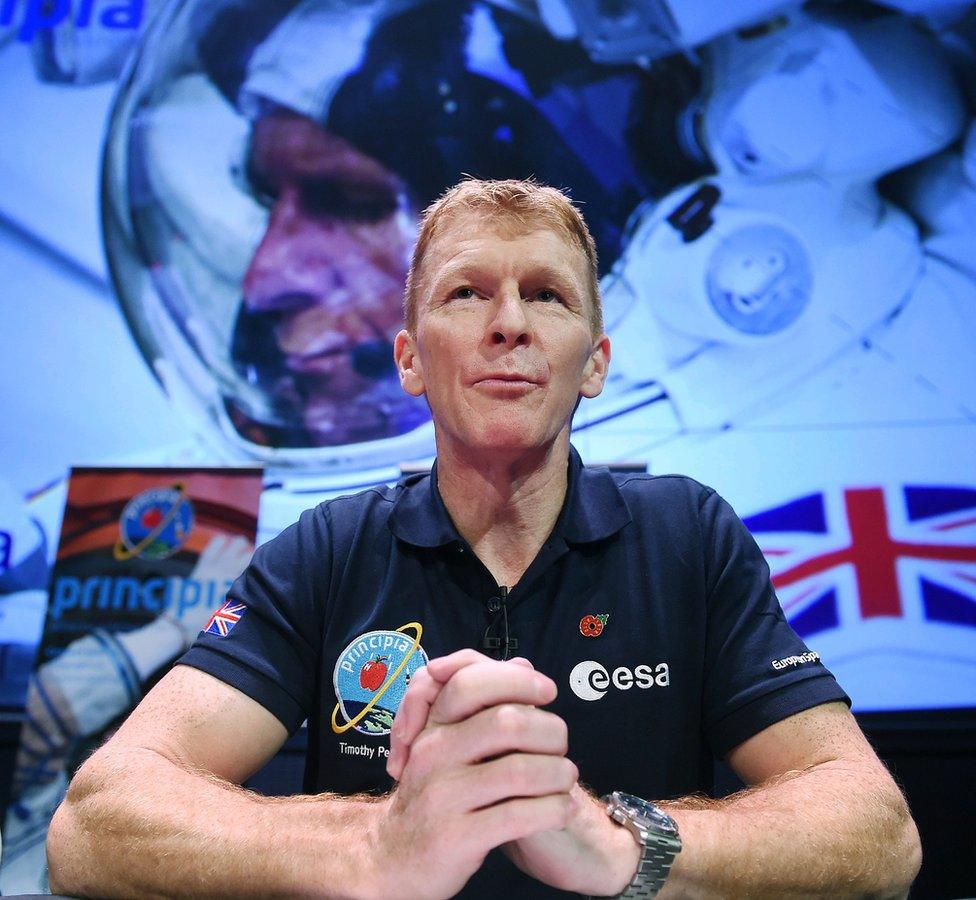
These will study a range of conditions, from asthma to problems associated with the immune system.
A major imperative for Mr Peake, though, will be his educational programme, external.
With the help of the UK Space Agency, he has activities planned for all ages - from four up to graduate level.
These include, for example, programming and running Raspberry Pi computers in orbit.
"It will take a few years to identify the educational legacy but we're working as hard as we can to make sure we have the biggest impact across all the schools in the UK during the mission - by running competitions, by raising awareness of what's going on, by having fun with science, but with a more serious undertone to get more people involved in science, engineering and maths," he said.
Tim Peake is the first "official" UK astronaut. That is, he is the first to fly on a government-supported programme.
All those "Brits" that have gone before him have done so either as US citizens or as part of private ventures - like Helen Sharman, who went to the Mir space station in 1991.
Science Minister Jo Johnson said it was a big event for the country: "We're spending as a country £400m a year on our UK Space Agency and much of that is spending in collaboration with the European Space Agency which is a real force multiplier for us.
"And I want to say that this is such a brilliant moment for science in the UK. Nothing is going to be more inspiring than what Tim is going to be doing on 15 December. It's our moonshot moment and we've got to make the most of it."
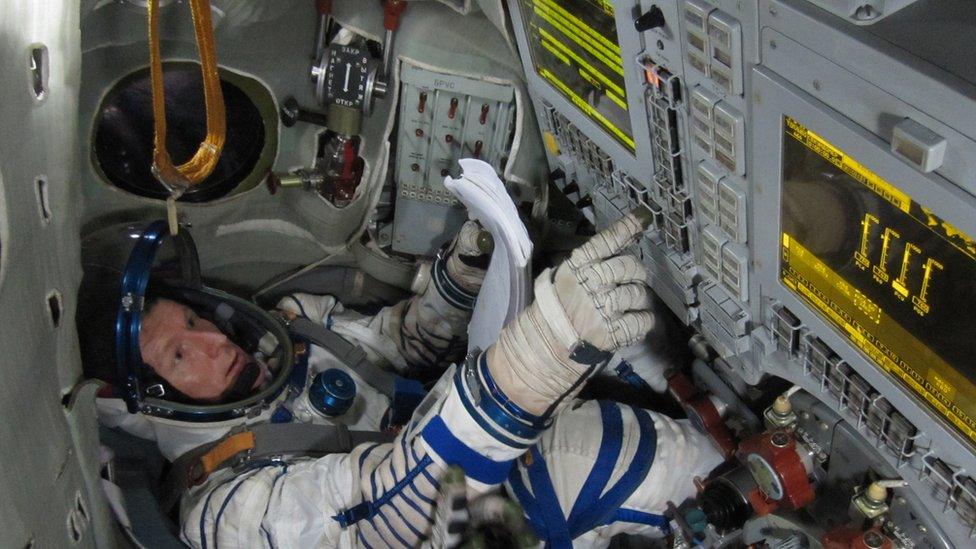
Mr Peake is in the final stages of training for his mission
- Published6 November 2015
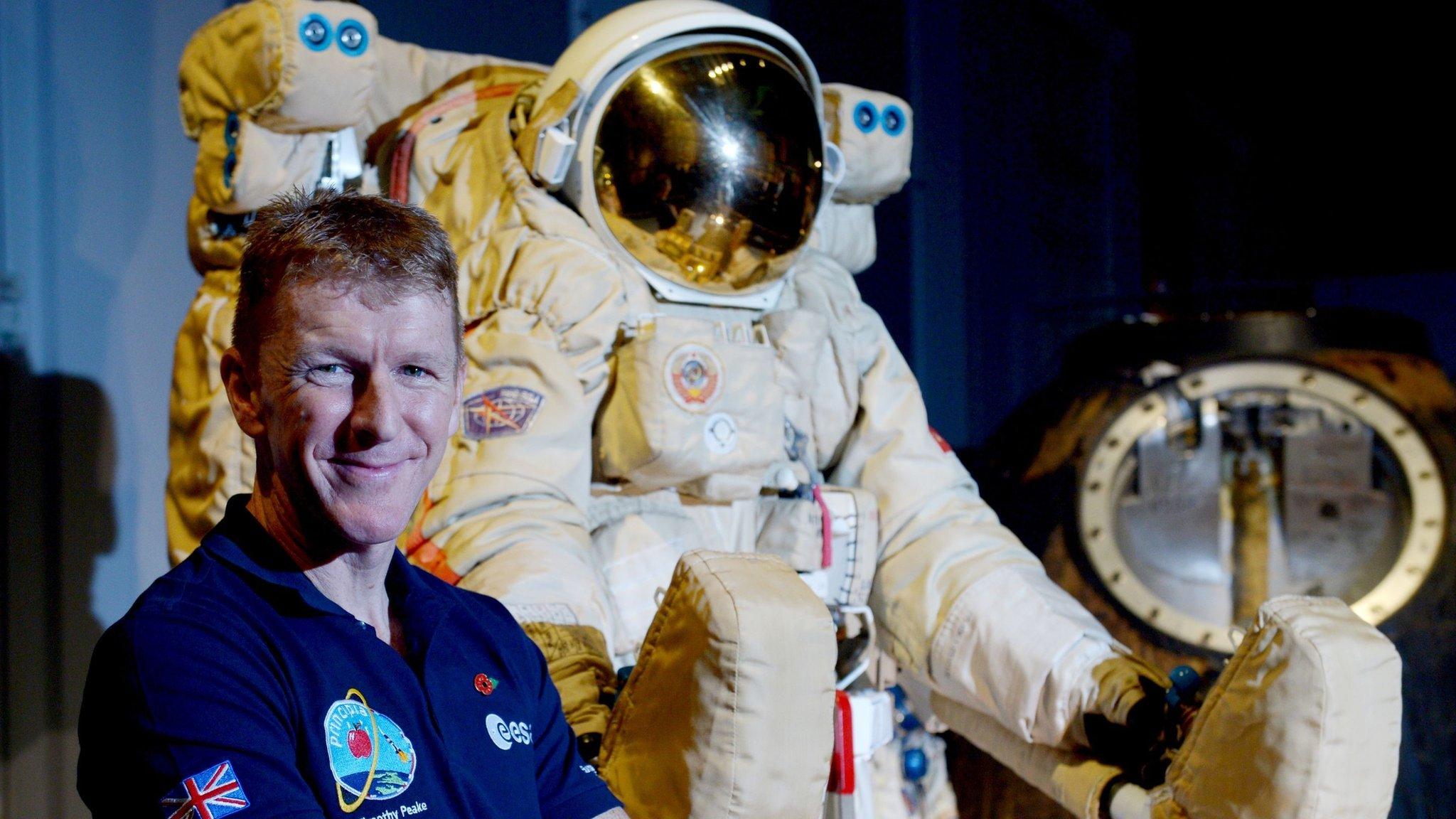
- Published23 September 2015
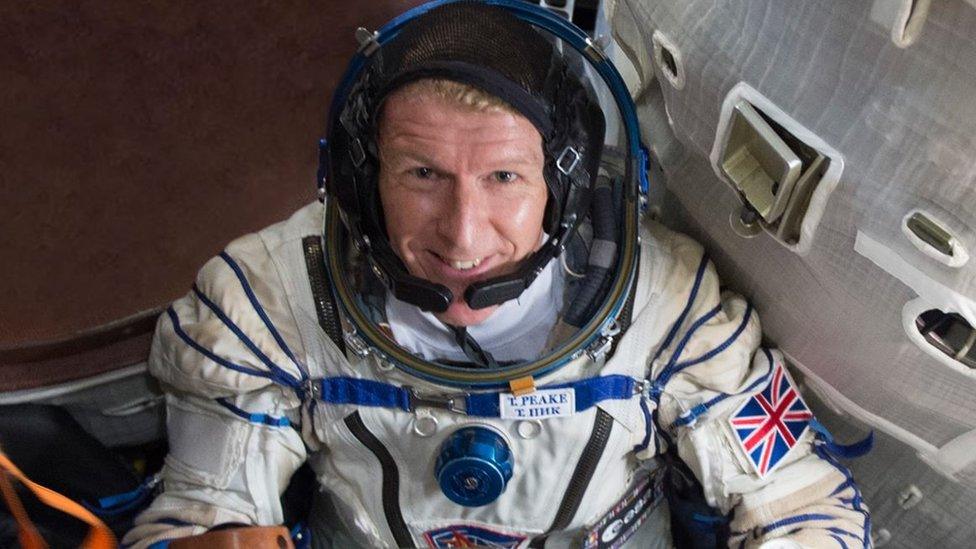
- Published6 May 2015
